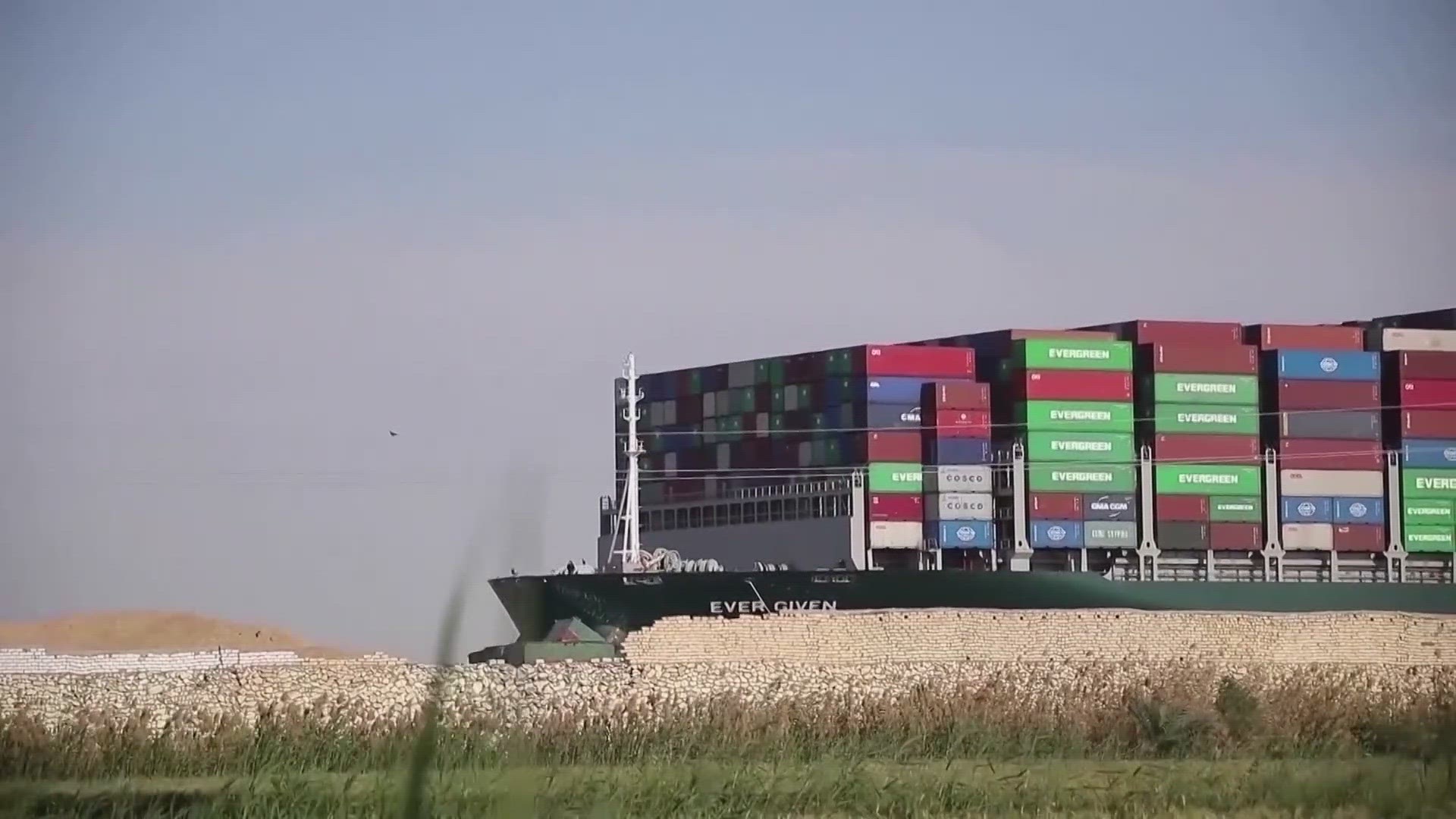COLUMBUS, Ohio — Attacks on shipping vessels in the Red Sea are forcing many shipping companies to change their routes.
There are backup options if ocean shipping carriers don't want to pay the extra insurance premium or take the risk of going through the Red Sea and Suez Canal after a constant threat of missile attacks by Yemen’s Houthi rebels.
“There's tangible costs because their insurance premiums go up when they're traveling through the Suez Canal due to those risks,” said Keely Croxton, a professor and associate dean at the Fisher College of Business at Ohio State University. “A lot of shipping companies are choosing to go around the Horn of Africa instead.”
Croxton is also an expert in supply chain and logistics. She said the Cape of Good Hope could add up to 10 days of travel and come with additional fuel costs.
Croxton said companies can still utilize west coast ports, which are accessible through the Pacific Ocean, or go through the Panama Canal to get products to the east coast, although water levels at the Panama Canal are limited due to low water levels.
Croxton says consumers might not see a major increase in cost because the Suez Canal trade route only provides about 15% of goods to the United States.
“If the attacks in the Red Sea continue, then we might see more delays,” said Croxton. “But for now, I think organizations have enough inventory to handle it to the point where the consumer might not see it too much. We might see some cost increases, again, if it goes on for much longer. I'm hearing some reports that might be a month or two… that supply chains can probably handle with minimal impact to the consumer.”
Croxton said the pandemic has strengthened global supply chains so disruptions have been less impactful.

